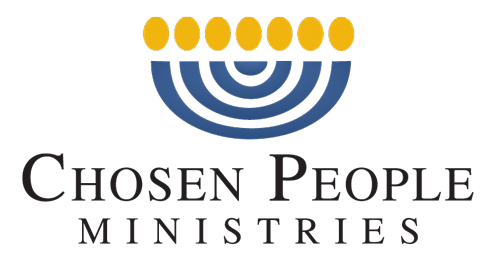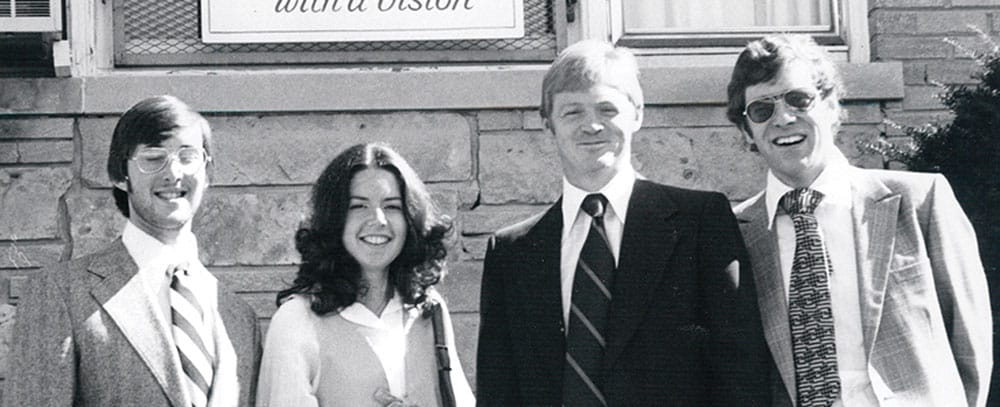Roy Schwarcz: A Testimony
My Ministry to Suburban Jewish People in Chicagoland
By sharing my experiences with reaching Jewish suburbanites with the good news, I hope you will gain some insight that will help you do the same. The Lord allowed me to begin two congregations in the Chicago area, and I led Adat Hatikvah Congregation for twelve years. Those experiences helped me understand some of the dynamics of reaching Jewish suburbanites and discipling them in their new faith.
Our goal for the congregations was to reach Jewish people and families. My wife Joanne is not Jewish but has a heart and love for Israel and the Jewish people. We wanted to raise our children to be comfortable in both the Jewish and Christian worlds. We believed they needed to appreciate and love both expressions of the faith.
Joanne was an integral part of the congregation’s children’s outreach. Having four children born and raised in our communities was a significant element in attracting other families with children and similar backgrounds. I believe this was key to the growth of each congregation we planted.
The congregations were in communities where there were many marriages between a Gentile Christian and an unbelieving Jewish person. So, we focused our message and ministry on helping those families learn that Yeshua is Israel’s promised Messiah and that biblical Christianity is Jewish at its core.
We named the first congregation The Olive Tree, based on the teaching of Paul in Romans 11. Many in the Roman Christian community believed God had rejected the Jewish people because of their resistance and hostility toward the gospel. But Paul reminded them that faith in Yeshua and the kingdom He brought is thoroughly Jewish. Moreover, Paul saw God’s kingdom, previously accessible through Israel, as now including Gentiles through their faith in Yeshua the Messiah.
In Acts 13, Paul wrote, “It was necessary that the word of God be spoken to you first; since you repudiate it and judge yourselves unworthy of eternal life, behold, we are turning to the Gentiles” (v. 46). Unfortunately, the predominantly Gentile historical church has taken those words out of context. They thought it meant a complete and final rejection of Israel as God’s people. However, we know that in the next city Paul visited, he went to the Jewish community first.
The church’s failure to understand this in context led to a disconnect from the Jewish foundations of the New Covenant Scriptures and message. As a result, this divide impeded the church’s outreach to Jewish people with the good news of the Messiah. Wherever Paul went, he began his ministry of proclamation with the Jewish community. (Romans 1:16).
Both congregations we planted near Chicago began with worship on Sunday. This decision was intentional at that time to identify with the body of Messiah. We wanted to convey the unity to which God called us in Israel’s Messiah. We also intended to help Jewish and Gentile spouses see that biblical Christianity is Jewish. We wanted visitors to know that we were a Jewish-oriented church and fully part of the global body of Messiah. We wanted Jews, Christians, and non-believers to feel welcome and that this could be a safe place to grow in faith by studying God’s Word from a Messianic Jewish perspective. Finally, we wanted to convey that Christianity and the church were not “other” religions.
Over time, we moved our day of worship to Saturday. This seemed to be more appropriate for the Jewish people we were reaching, of course. We believed that biblical Christianity must express the unity between the Old and New Covenants in a visible way so that it is taught and caught! We did not worry about the opinion of the rabbis or the church because we were transparent about what we believed in both our doctrinal statements and practices. We wanted our people to fix their eyes on Yeshua, the Lord of both covenants.
I began my congregation-planting life as a full-time student in the Jewish Studies program at Moody Bible Institute in Chicago. I also worked part-time for the American Board of Missions to the Jews (ABMJ), now known as Chosen People Ministries.

The summer before we began our first service at The Olive Tree Congregation, we went door-to-door in the neighborhood. Some of our first attendees came to us because of our conversations with them in their homes. Word of mouth also brought many intermarried couples. It was also a time of revival in the country, and many Jewish people were coming to faith. After three years, the congregation became financially and spiritually stable so that we could turn the pastoral duties over to one of our elders. The congregation then became independent.
Two years later, the Lord led us to begin a new work. Our family, John Bell, and another full-time worker with Chosen People Ministries started a second congregation in Buffalo Grove called Rock of Israel. Buffalo Grove was a fresh and fast-growing Jewish suburb with new homes and families at that time.
A vibrant children’s program with teachers committed to helping families understand the Jewishness of Christianity attracted more and more mixed couples. John Bell appealed to the Gentile Christian families who attended.
The Jewish and interfaith couples were usually new to the faith and biblical doctrine. They felt comfortable with my leading the congregation. The Jewish people who attended thought I was authentically Jewish and could relate to me as their leader. My wife Joanne and her solid Gentile Christian heritage helped the non-Jewish women who were married to Jewish men feel comfortable because they could relate to her.
Three years after we began, we merged with a Baptist church in the community that was down to just a few members, but they had a building on five acres of land and were supportive of our work among the Jewish people. They, too, wanted to reach the Jewish people of Buffalo Grove. This church embraced our constitution and leadership as they turned the building and property over to our care and use.
I confess that I am not an expert missionary or professional congregational planter. However, the Lord has done it all in spite of me. Yes, of course, He used the gifts He endowed me with, and I have seen those gifts used more effectively as I have learned to walk in His Spirit as opposed to the flesh. I can confidently say that God takes weak and broken vessels and uses them to bring others to Himself through Yeshua. We are a testimony of His love and grace.
I can testify that if we put Him first and walk in His ways, He will do His work, whether it is to suburbanites, city people, Jews, or non-Jews. He will use us to share with the greater body of Messiah that God is still at work among the Jewish people, and that He is returning soon to Jerusalem. He will bring His kingdom to earth as it is in heaven. It is nearer every day, and the peace and joy we have in this crazy world will serve as an anchor for our souls and a safe harbor for others.
So, as the Lord provides you with opportunities to minister to suburban Jewish people, remember these three things:
Many will be in interfaith relationships—sensitivity to the faith backgrounds of both spouses will go a long way.
No matter your faith background, be authentic—it is essential that Jewish people know from where you are coming.
Success is not dependent on you—God is responsible for the outcome.
May God bless each of us as we serve Him and His chosen people with the good news that the King and the kingdom have come!







